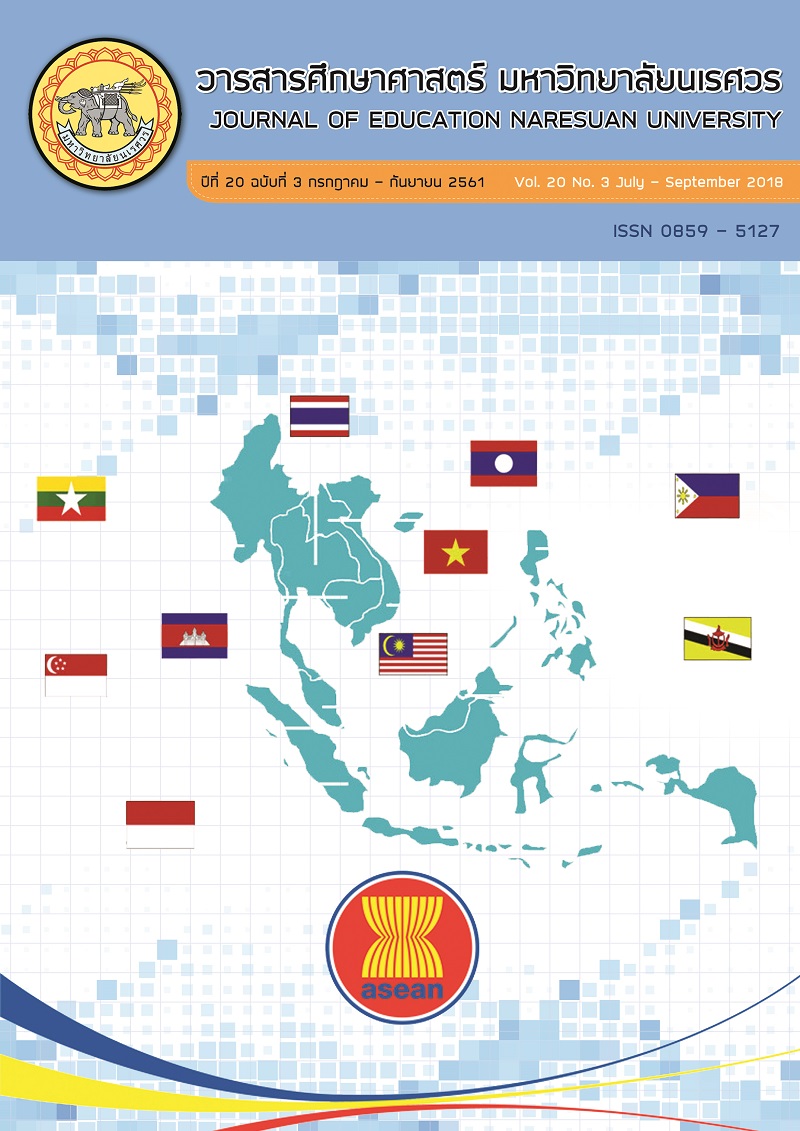THE KEY TO THAI STUDENTS’ SUCCESS IS BECOMING AN ACTION TEACHER RESEARCHER: BENEFITS, CHALLENGES AND SOLUTIONS
Main Article Content
Abstract
Action research is one of the powerful tools which result in positive learning outcomes of students. It is also a tool for the empowerment of teachers who are overwhelmed in the educational system. Hence, it is essential that teachers become action teacher researchers to bring about both major and minor changes in the educational system. Action research plays a tremendous role not only in bringing changes to a classroom but also, on a wider scale, across the curriculum of the learning community, especially in EFL contexts at the tertiary level.
However, as it seems, action research is often placed in the shadows merely acting as an activity on an academic checklist for official duties, annual performance, or classroom problem fixing. The purpose of this article is to discuss the benefits of conducting action research in EFL at the tertiary level, the issues derived from the conflicts amongst national higher educational policies, institutional policies, and cultural norms. It then explains what need to be done to help teachers to conduct an action research and become action teacher researchers, especially classroom action research. After reading this article, it is hoped that EFL teachers will be empowered and ready to start their own action research study.
Article Details
The owner of the article does not copy or violate any of its copyright. If any copyright infringement occurs or prosecution, in any case, the Editorial Board is not involved in all the rights to the owner of the article to be performed.
References
Burton, J. (2000). Learning from teaching practice: A case study approach. Prospect, 15(3), 12.
Burton, J., et al. (2008). Chapter 5: Professional renewal and EFL curriculum reform in Thailand. in D. Murray (Ed.). Planning change—changing plans, p. 13.
Donato, R. (2012). Action research: Exploring teaching practices. Retrieved July 2, 2016, from https://www.researchgate.net/publication/242479384
Freeman, D. (1998). Doing teacher research: From inquiry to understanding. Heinle and Heinle, 6, 57.
Harley, G. (1997). Action research: Something for everyone. Retrieved July 10, 2016, from http://files.eric.ed.gov/fulltext/ED415698.pdf
Hine, G.S.C. (2013). The importance of action research in teacher education Programs. Educational Research, 23(2), 151-163.
Jersabek, A. (2010). Why western approaches fail in Asia: A classroom action research on developing creative processes and knowledge sharing abilities. Retrieved July 2, 2016, from https://www.researchgate.net/publication/
Johnson, Karen E. (2009). Chapter 2: Trends in second language teacher education. NY: Cambridge University Press.
Katz, A., & Snow, M. A. (2009). Chapter 7: Standards and second language teacher education. NY: Cambridge University Press.
Lundquist, T. (1990). Empowering ourselves as we empower our students. Retrieved July 8, 2016, from https://www.tesol.org/news-landing-page/2011/10/31/teis-newsletter#sthash.mEW6AD9e.dpuf
Norasmah, O., & and Chia, S. Y. (2016). The challenges of action research implementation in Malaysian Schools. Retrieved July 8, 2016, from http://www.pertanika.upm.edu.my/
Pine, G. J. (2009). Teacher action research: Building knowledge democracies. Los Angeles: Sage Publication.
Puengpipattrakul, W. (2011). Reflections on Action Research Roles, Networks and Implications in English Language Teaching. Kasetsart J. (Soc. Sci), 32, 148 – 157.
Sahasewiyon, K. (2004). Working locally as a true professional: Case studies in the development of local curriculum through action research in the context of Thai schools. Educational Action Research, 12(4), 494, 502.
Simonsen, J. (2009). A concern for engaged scholarship the challenges for action research projects. Scandinavian Journal of Information Systems, 21(2), 111–128.
Thongthai, W. (2011). The way of self-developing to be teacher as researcher: A case study of one elementary teacher. Retrieved July 8, 2016, from http://www.ipedr.com/vol5/no1/77-H00163.pdf
Watson Todd, R. (2010). Why do action research? Complied by Associate Prof. Dr. Jaafar Jantan. Retrieved September 17, 2016, from http://drjj.uitm.edu.my/DRJJ/MATRIC2010/1.%
20Action%20Research%20In%20Schools-DRJJ-02022010.pdf


